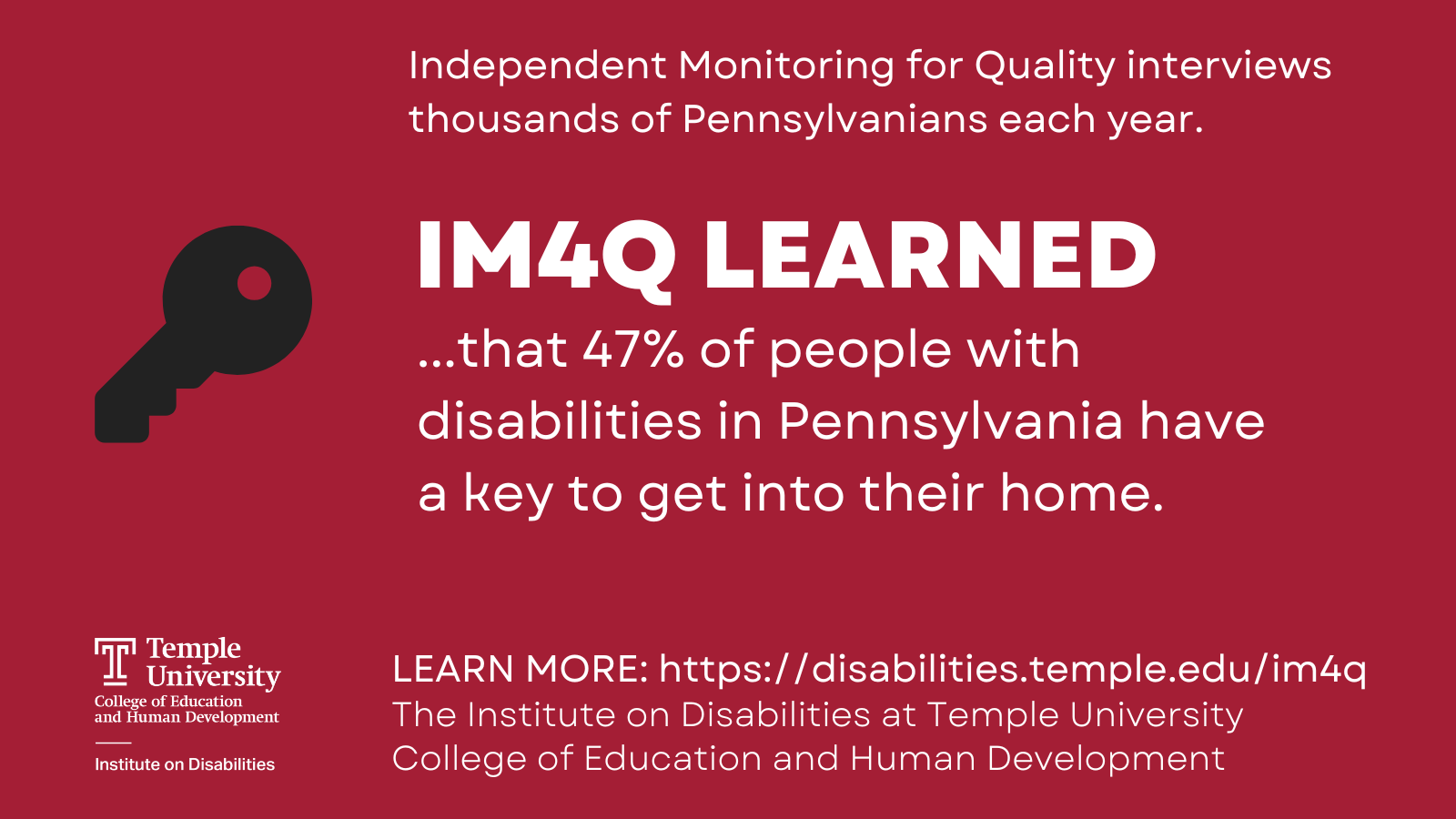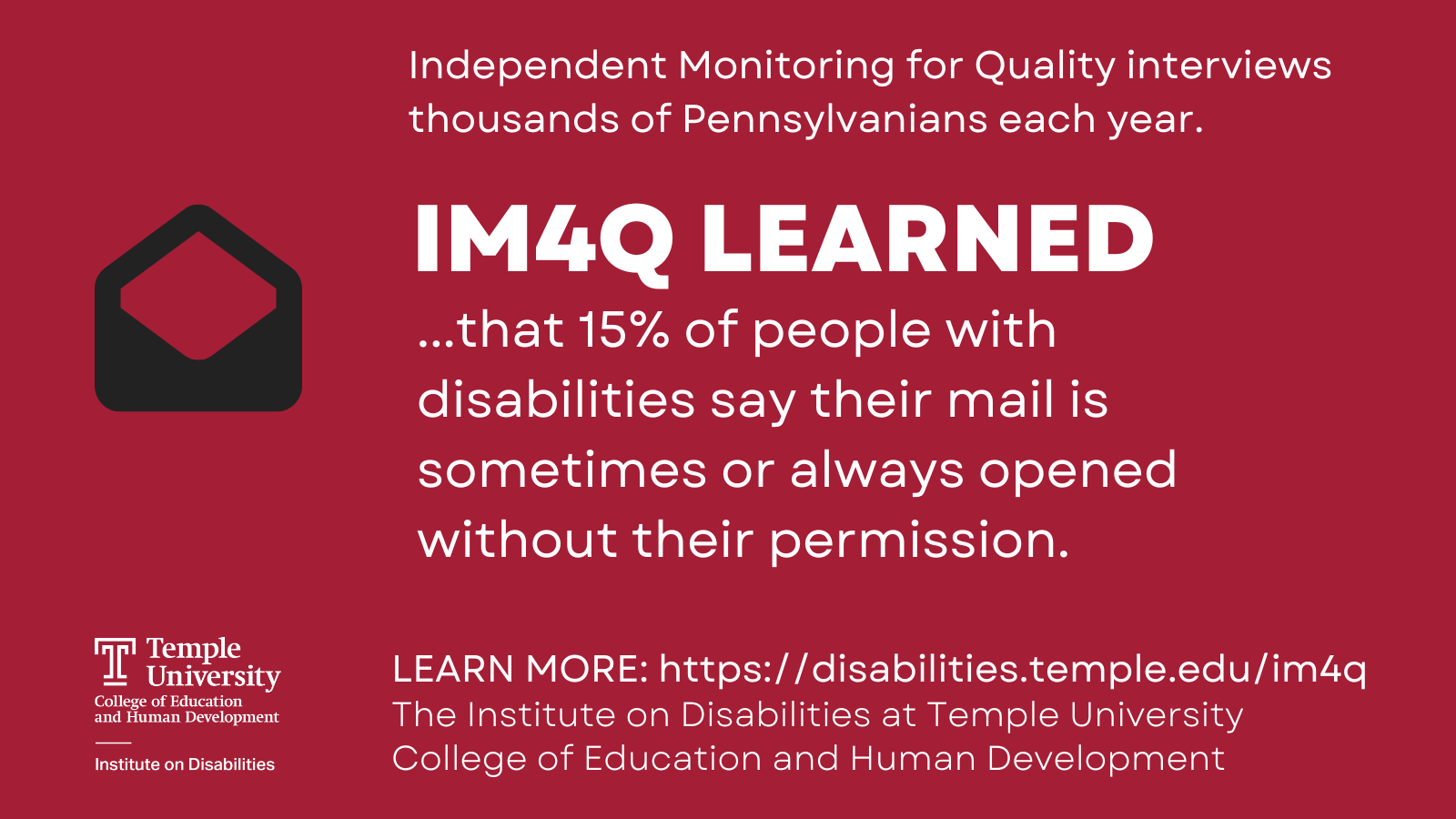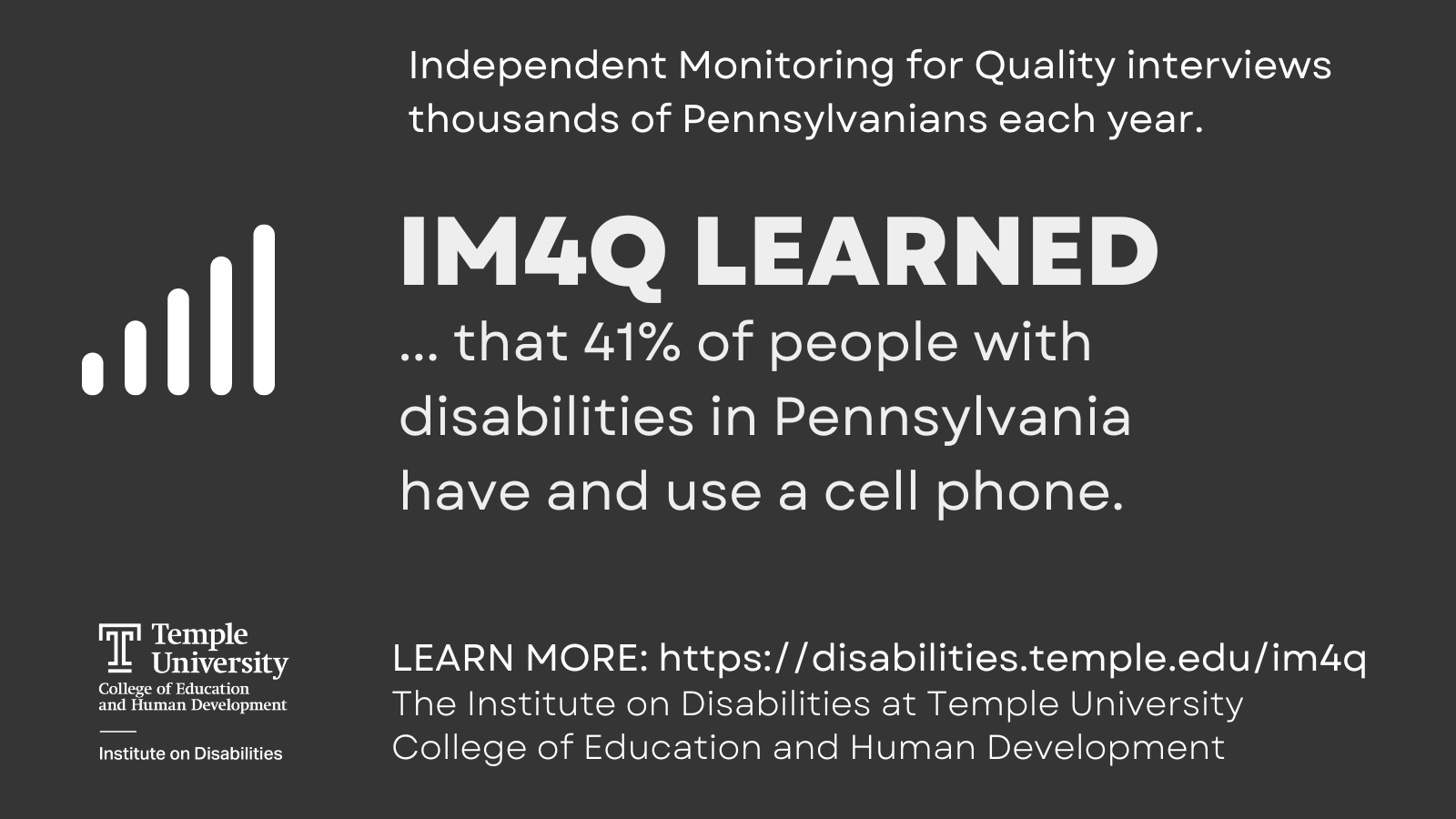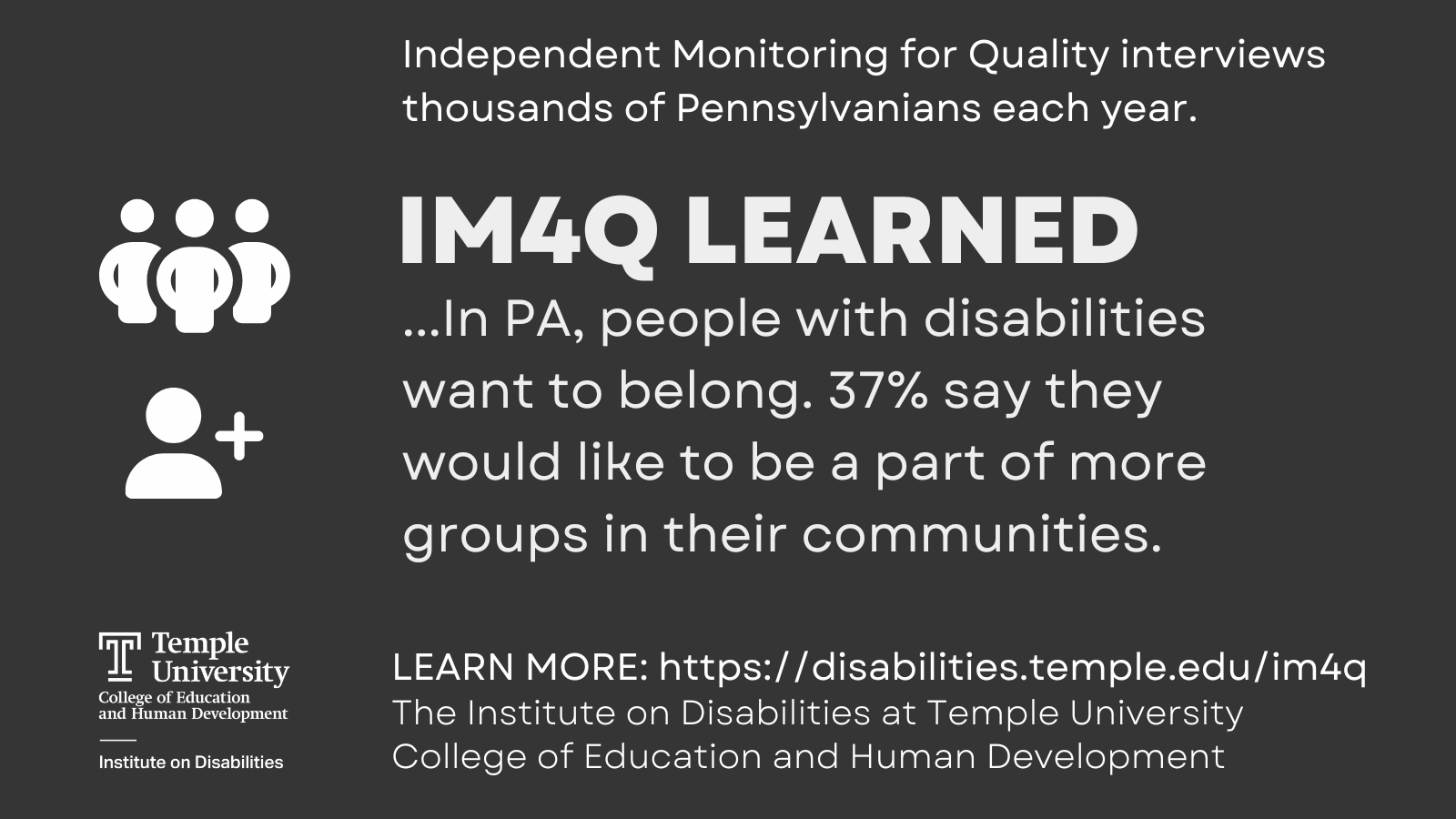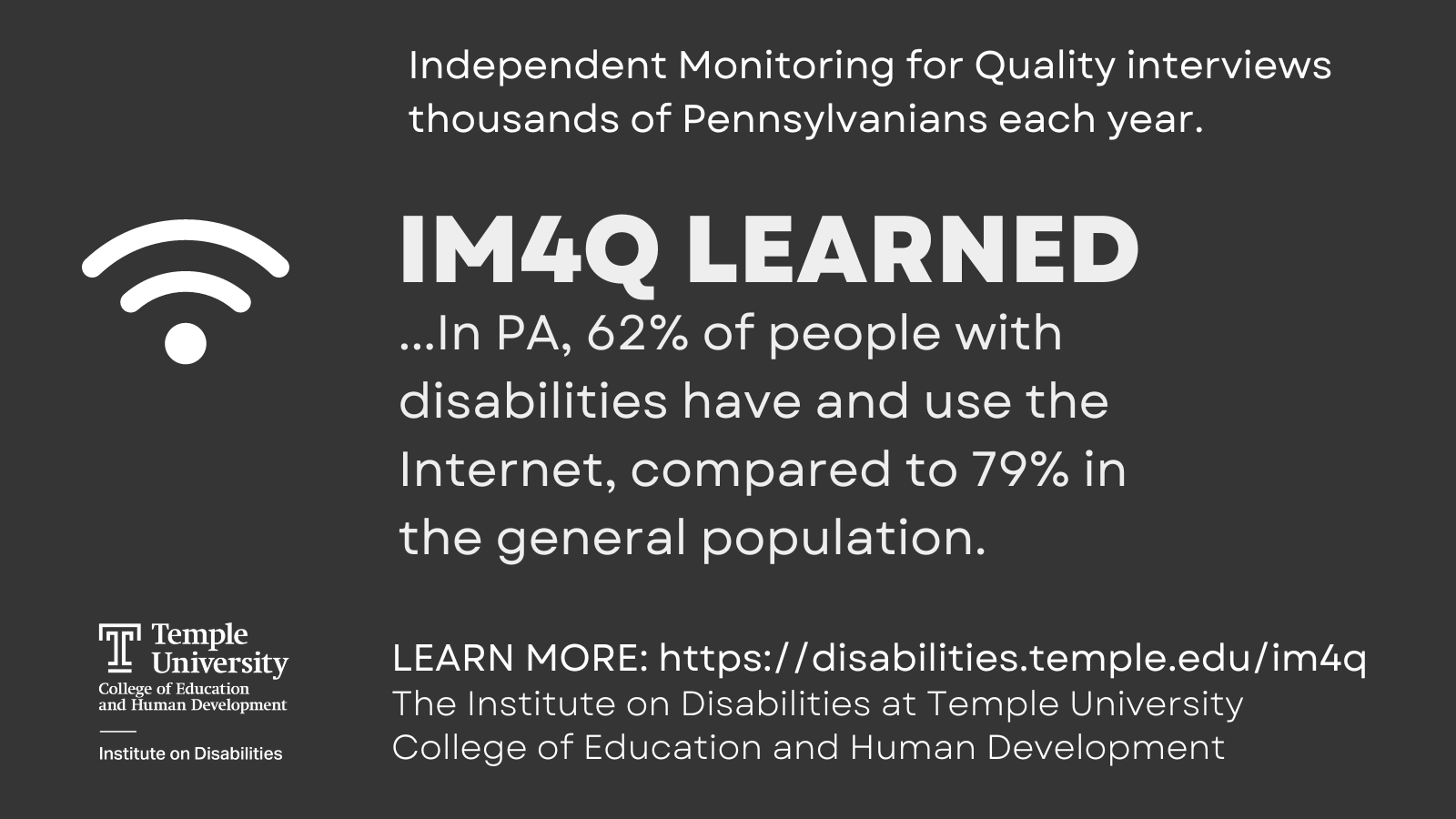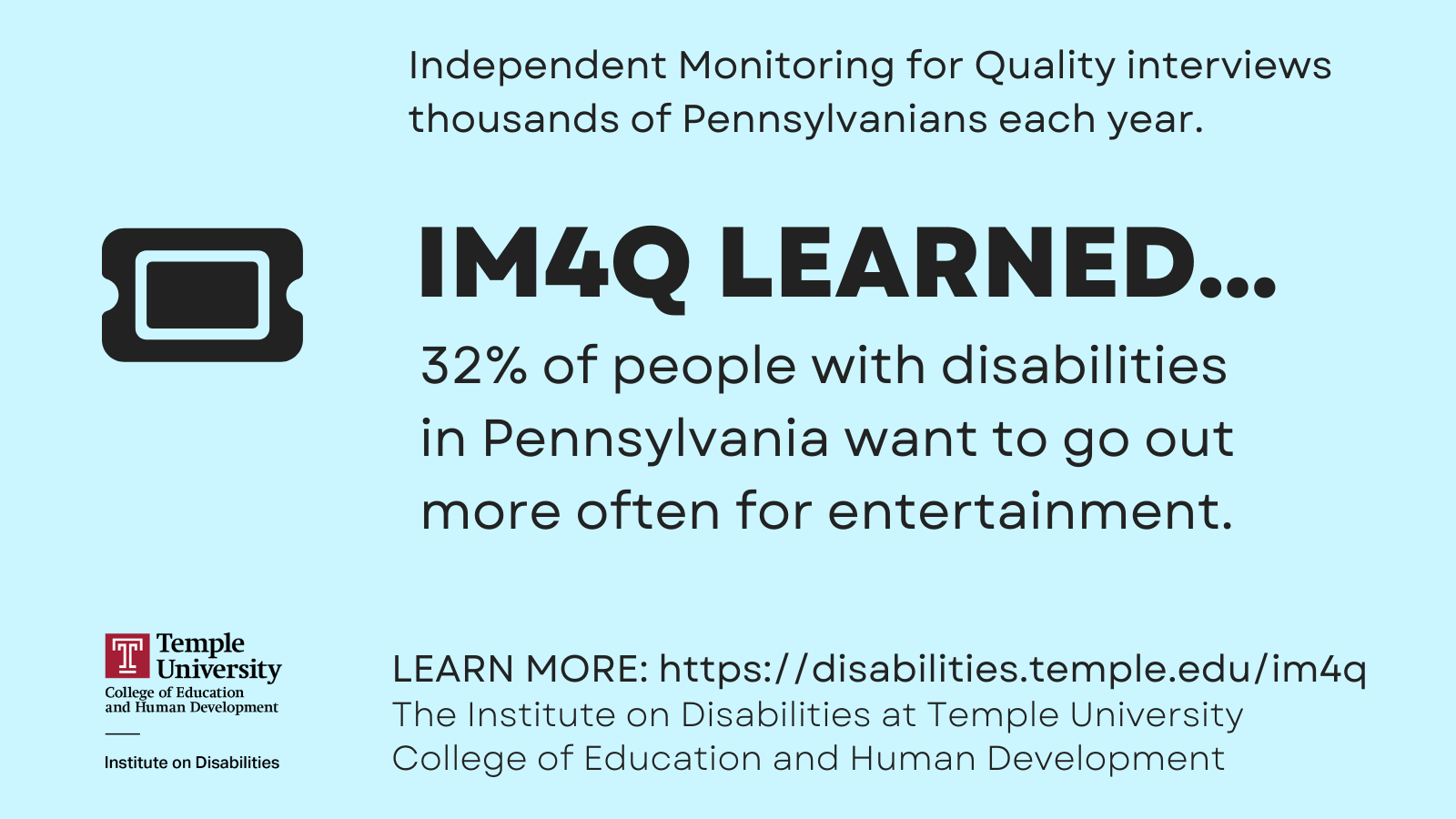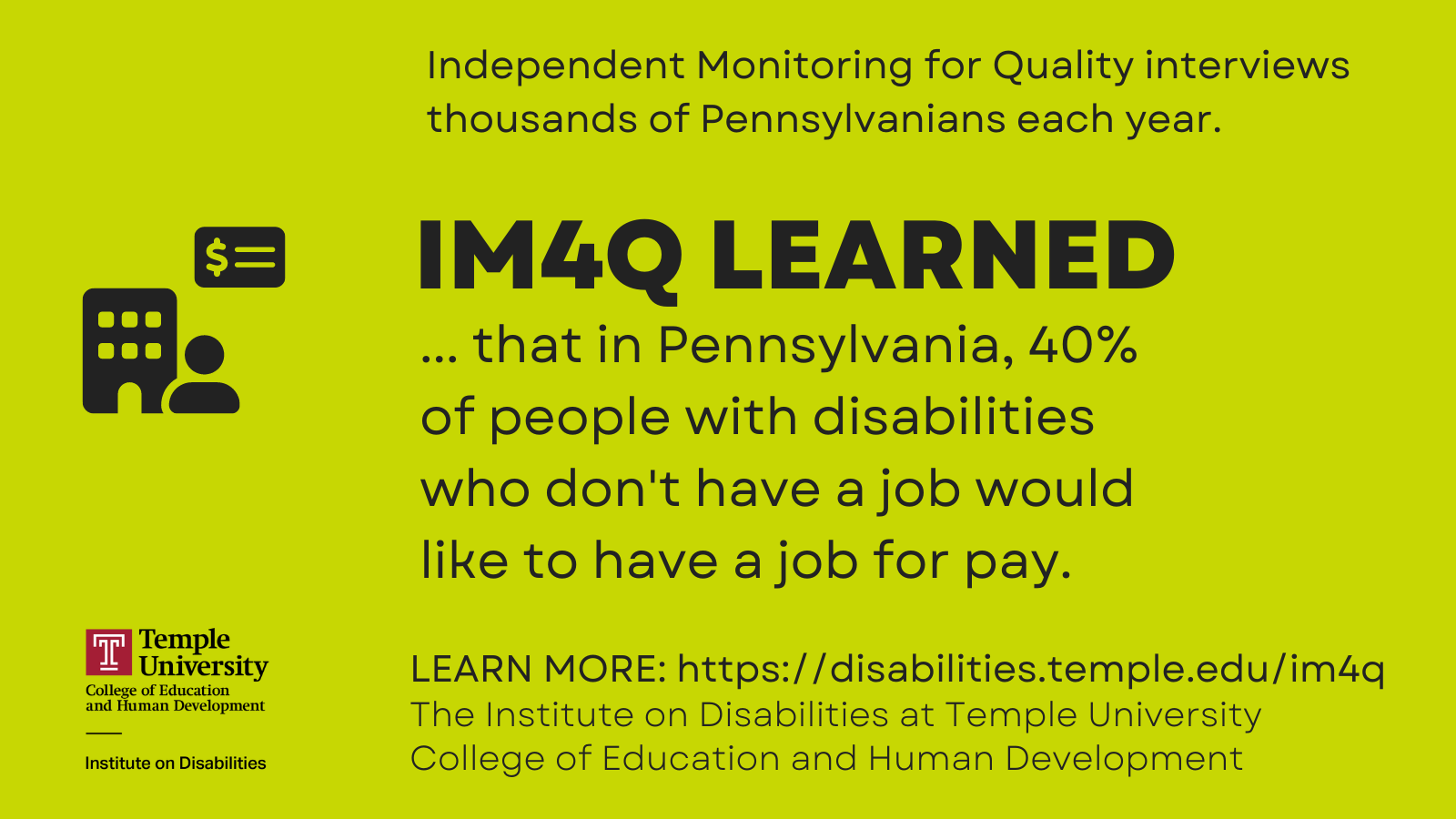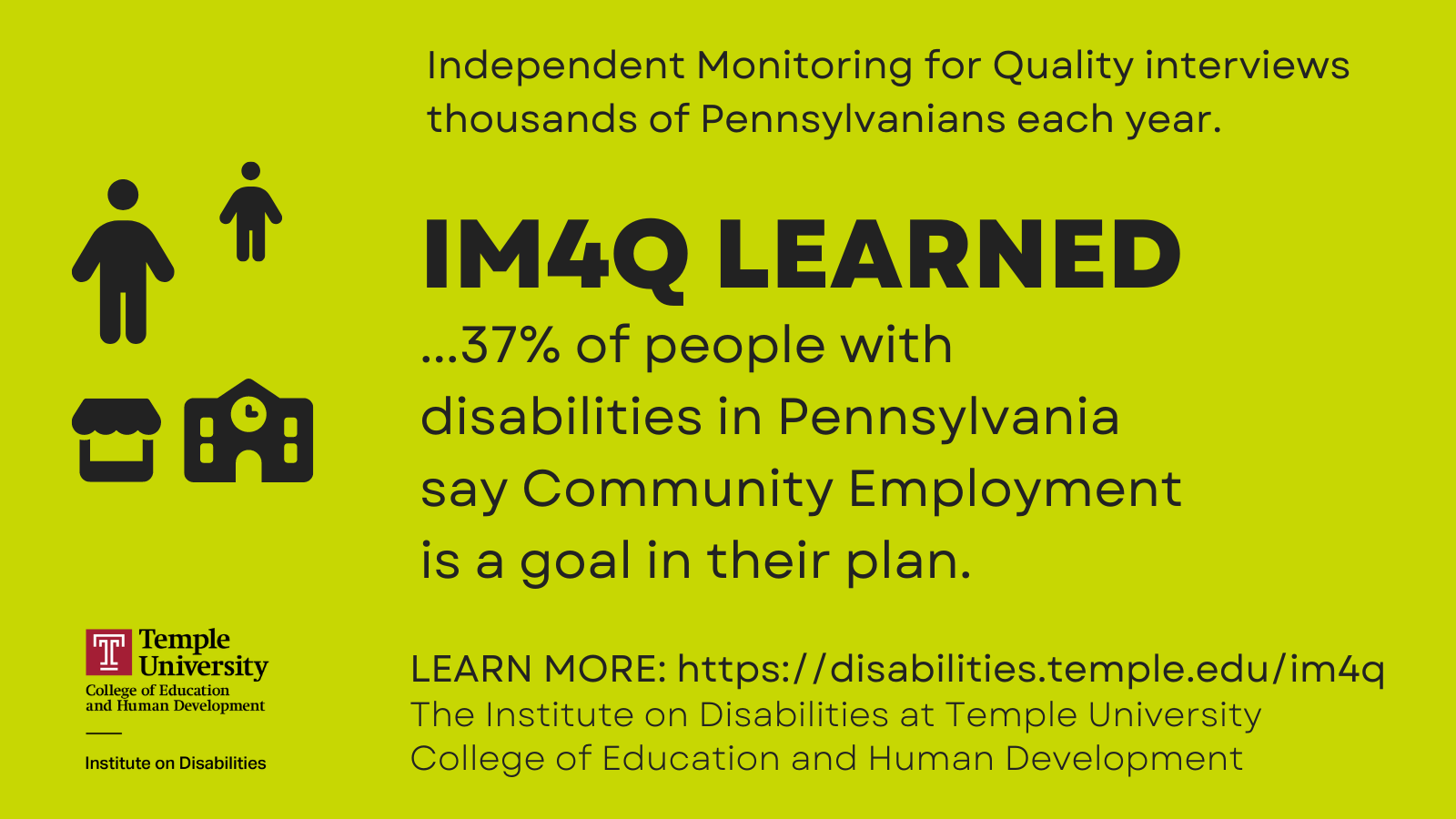The IM4Q team conducts an annual survey which collects data on individuals with intellectual and developmental disabilities receiving services from the Office of Developmental Programs in Pennsylvania (ODP). IM4Q is the abbreviation we use for the Independent Monitoring for Quality program in Pennsylvania.
The project is informed by people with disabilities, and the survey teams always include at least one person with a disability or a family member. Each year, about 5,500 people with intellectual and developmental disabilities participate in the surveys. They answer questions about their thoughts and perceptions of their life circumstances in many areas, such as satisfaction; dignity, respect, and rights; choice and control; inclusion; and family, friend, and guardian experiences.

